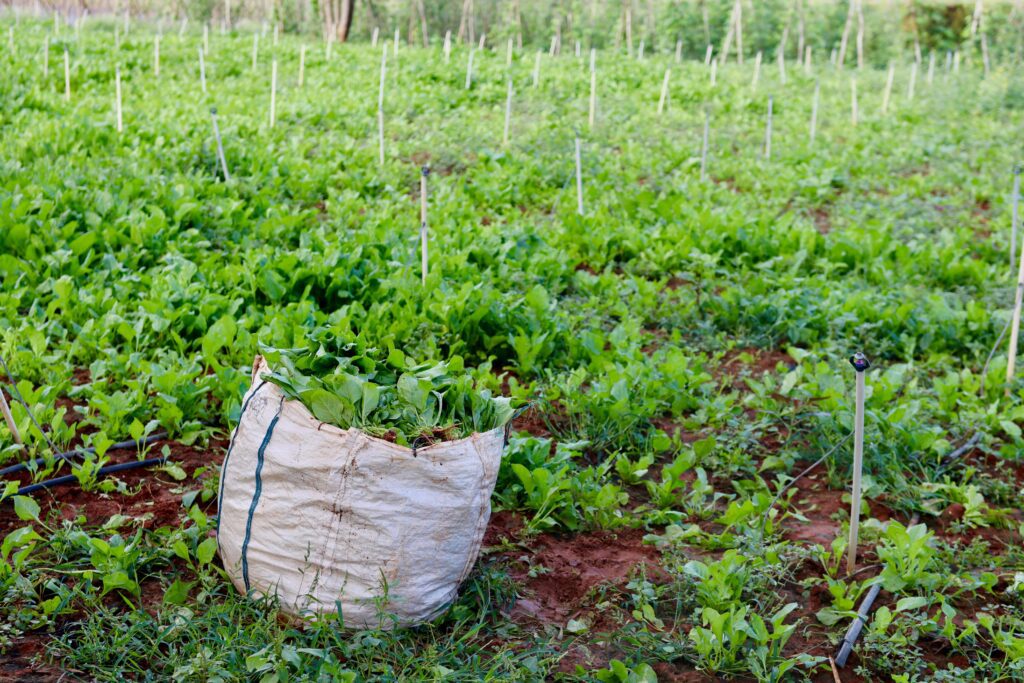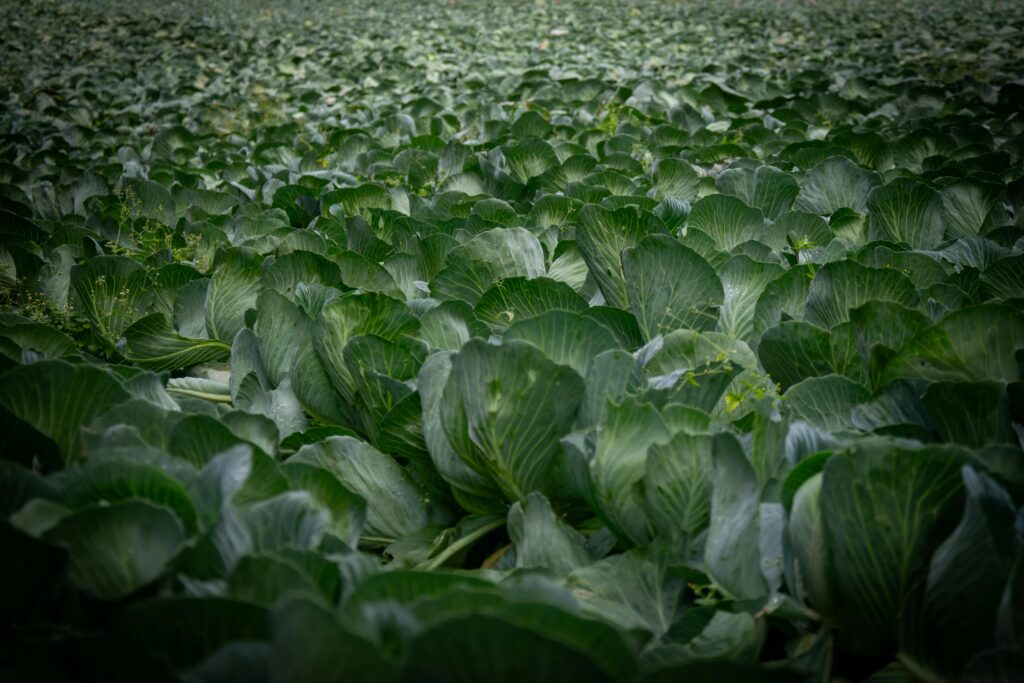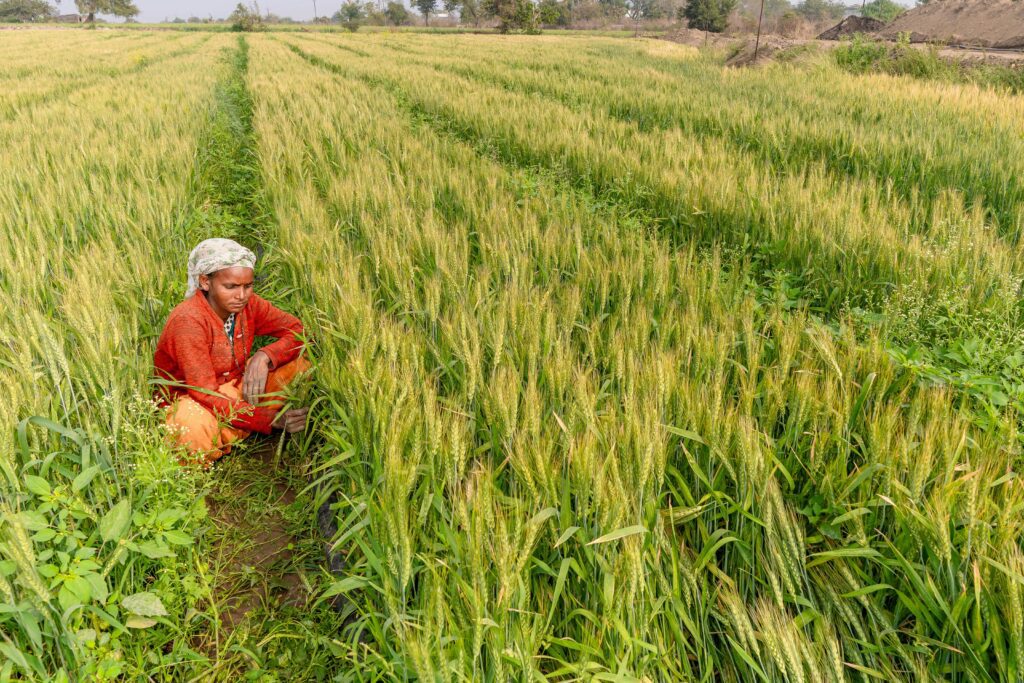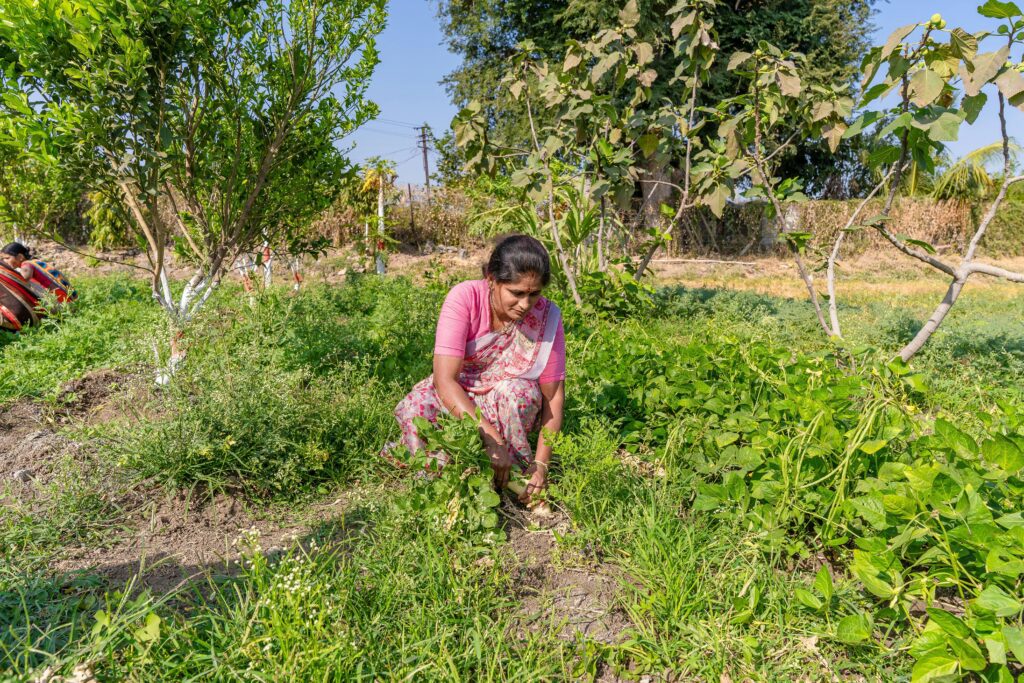Table of Contents
Introduction
Traditional farming has been the pillar of world agriculture for centuries, feeding generations with consistent crop production and tried and true techniques.
In spite of the fast development of new technologies such as hydroponics and vertical farming, traditional farming is still predominant in most areas of the globe because it is budget friendly, versatile, and strongly based on ancestral practice.
But among the issues facing farmers nowadays is degrading soil fertility because of repeated cropping, excessive use of chemical fertilizers, and absence of organic replenishment.
Healthy soil is the keystone of productive farming, and restoring its natural balance is a must to ensure long-term agricultural sustainability. And that is where time honored soil enrichers such as farmyard manure and compost manure are needed.
They not only increase soil fertility but also increase crop resistance, lower input expenses, and maintain long term yield. In this blog, we are going to learn the secrets of conventional farming and understand how incorporating organic methods such as manuring can make land fertile, sustainable, and profitable.
Land, which is commonly known as the “living factory” of food, needs continuous feeding in order to remain productive. Unlike synthetic fertilizers that provide short-term nutrition, farmyard manure and compost manure contribute to the long-term regeneration of soil health.
These organic inputs supply essential nutrients, improve soil texture, and stimulate microbial activity, which collectively boost plant growth. Moreover, they align perfectly with the principles of conventional farming, where natural methods are preferred over overly mechanized or high-tech approaches.
By realizing how these manures function and how they can best be used, farmers can decrease reliance on expensive chemical inputs and safeguard the environment from toxic residues.
This harmony of tradition and sustainability renders traditional farming not only a practice of the past, but a sound avenue for the future.
Such practices are more important than ever. With the population of the world increasing and food security emerging as a critical concern, enhancing soil fertility is no longer a choice but a necessity.

Farmers, policymakers, and consumers alike are now beginning to understand that the quality of soil has a direct influence on the quality of food. Crops are healthier, better-tasting, and more nutritious when soils are fertile and contain adequate organic matter and nutrients.
On the other hand, degraded land results in weak vegetation, reduced harvests, and heightened susceptibility to pests and diseases.
Hence, implementing farmyard manure and compost manure in traditional farming is not merely about enhancing harvests—it is about establishing a sustainable loop wherein soil, plants, and farmers benefit together.
In the ensuing sections, we discuss the advantages, methods, obstacles, and actual applications making these organic processes priceless for farming communities globally.
Advantages of Applying Farmyard Manure and Compost Manure in Conventional Agriculture
Improved Soil Fertility and Structure
One of the strongest advantages of conventional farming when blended with organic inputs is the natural improvement in soil fertility.
In contrast to chemical fertilizers that give mainly nitrogen, phosphorus, and potassium in concentrated form, farmyard manure and compost manure deliver a balanced proportion of macro and micronutrients.
These manures contain high concentrations of organic matter, which enhances soil structure and makes it more loose, aerated, and water-holding. Enhanced soil structure means that roots can penetrate deeply and nutrient uptake is better.
For marginal and small farmers, this natural increase in soil fertility means less reliance on costly synthetic inputs. With time, the treated fields also see enhanced drainage, less compaction, and increased erosion resistance, which guarantees long-term productivity for generations to come.
By adopting such measures, conventional agriculture shifts from being solely yield-oriented to soil-health based, developing a platform for sustainable long-term agricultural productivity.
Increasing Microbial Activity and Soil Life
Healthy soil is more than a plant growth medium—it is a living ecosystem with infinitely many microorganisms that have essential functions to cycle nutrients. Traditional farming using farmyard manure and compost manure offers the ideal environment for these beneficial microbes to multiply.
The organic carbon in these manures is used as a food source for soil bacteria, fungi, and earthworms that break down organic matter and release nutrients slowly and consistently. This consistent release of nutrients avoids the danger of leaching, a danger associated with chemical fertilizers.
The increased microbial activity will also enhance soil’s inherent disease immunity by inhibiting disease-causing pathogens. For farmers, this translates to healthier crops with lower dependence on pesticides.
Additionally, earthworms drawn towards soils with high organic content form tunnels naturally, which allow for aeration of the soil and enhance its texture. Therefore, the use of organic manures not only aids traditional farming but also converts land into self-sustaining ecosystems that constantly restore fertility.
Cost-Effective and Sustainable Farming
One of the biggest challenges of contemporary agriculture is the increasing cost of agricultural inputs, particularly chemical fertilizers and pesticides. With the application of farmyard manure and compost manure, conventional farmers can reduce these expenses significantly.
Both manures are readily available on farms—farmyard manure is produced from cattle dung blended with straw, whereas compost manure can be generated through recycling crop waste, kitchen scraps, and other organic materials.
Rather than incurring substantial costs on artificial products, farmers can depend on these inexpensive, renewable sources. In the long run, not only do they save on expenses, but they also minimize soil erosion and pollution of the environment.
For small farmers, especially in rural regions, this method provides greater economic security while keeping the soil fertile. Further, sustainable methods such as organic manuring increase the market value of the produce since buyers are increasingly demanding fewer chemicals in their food.
Therefore, incorporating manures in traditional agriculture is a win-win situation: healthier soils, healthier crops, and healthier profits.
Enhancing Crop Yield and Quality
The other crucial advantage of incorporating farmyard manure and compost manure into traditional farming systems is the enhancement of crop quantity and crop quality.

Although chemical fertilizers can give immediate results, they tend to undermine soil health in the long term and can actually cause declining production in the long term. Organic manures, however, enhance soils steadily and sustainably, guaranteeing that crop production is constant every year.
Nutrients that are released by compost and farmyard manure enhance grain filling, fruit growth, as well as plant vigor, leading to improved quality produce. Organically improved crops in soils also have improved flavor, smell, and nutritional content, which makes them more marketable.
As an additional benefit, healthy plants are inherently more drought-stress tolerant and resistant to pests, lowering crop losses. For farmers, this means improved yields with less risk.
By combining these practices, traditional farming not only guarantees short-term returns but also guarantees long-term agricultural sustainability.
Methods of Applying Farmyard Manure and Compost Manure in Traditional Farming
Preparation and Application of Farmyard Manure
The preparation of farmyard manure (FYM) is among the most tried-and-true practices in traditional farming. FYM is generally prepared by gathering cattle dung, urine-polluted bedding material, and excess fodder and piling them in a heap or pit to decompose.
Farmers cover the heap with soil or crop waste to retain the nutrients and minimize losses through volatilization. In three to four months’ time, the material becomes a dark, friable solid with high organic matter and plant nutrient content.
The best time to use FYM is prior to sowing or planting since it enables enough time for nutrients to be made available to crops. Farmers broadcast manure over the field uniformly and cultivate it into the soil to facilitate better integration.
Regular application of FYM enhances soil fertility over a period of time, thus making traditional agriculture both productivity-oriented in the short run and sustainability-oriented in the long run. Practical use of FYM also enhances the water-holding capacity of soil, which is very useful for rainfed farming systems.
Composting Methods for Organic Refuse
Whereas FYM comes primarily from animal sources, compost manure is made by recycling organic wastes like crop residues, kitchen waste, and farm by-products. In traditional farming, composting serves as a good method to minimize farm waste while creating a rich nutrient soil amendment.
Farmers adopt pit composting, heap composting, or vermicomposting based on resources available. In pit composting, soil is mixed with organic waste and allowed to rot for months, whereas heap composting is carried out by piling material in open heaps with regular turning to ensure aeration.
Vermicomposting, employing earthworms, is more efficient in that high-quality compost is made quicker. The key to successful composting is maintaining proper moisture, temperature, and aeration to encourage microbial activity.
Once ready, compost manure is applied to fields during land preparation or as a top dressing. This practice enriches soil with stable organic matter, improves nutrient availability, and complements the role of FYM in conventional farming systems.
Integrating Manure with Crop Rotation
Traditional agriculture can largely depend on crop rotation in order to control soil fertility and the cycles of pests. When complemented with the application of farmyard manure and compost manure, crop rotation works even better.
Legumes such as peas, beans, and lentils, for example, fix atmospheric nitrogen, which supplements the organic input brought in through manures.
Farmers can use FYM prior to sowing heavy feeders such as maize or wheat, with compost manure reserved for vegetables and fruits that require high quality organic matter. Strategic incorporation prevents soil depletion of fertility in alternating cropping cycles.
Also, rotation crops with application of manure prevents imbalances in nutrients and enhances soil texture. By integrating manure application with crop rotation, traditional farming becomes more sustainable, with less reliance on external fertilizers and pesticides.
Not only does the method provide high yields, but it also sustains ecological balance, showing that conventional methods coupled with organic inputs can yield great results.
Practical Tips for Farmers
For farmers who employ conventional farming, getting the most out of manures entails proper timing and management. To begin with, it is recommended that farmyard manure be used at least three or four weeks prior to sowing so that partial decomposition in the soil can occur.
Recent manure is not recommended because it might have pathogens or weed seeds that would damage crops. Likewise, compost manure should be completely matured to avoid problems like nitrogen immobilization.

Farmers must also emphasize balanced use—excessive use of manure can result in nutrient run-off, and limited use can fall short of supplying requisite fertility. Another useful suggestion is mixing manures with other organic amendments such as green manures or biofertilizers to maximize soil health.
In irrigation regions, application of manures prior to watering will facilitate quicker release of nutrients, whereas in arid regions, manures must be well mixed deep into the soil to minimize evaporation losses.
Following these simple but efficient methods, traditional farming can utilize the farmyard as well as compost manures to the maximum extent for long-term productivity.
Problem Areas in Using Farmyard Manure and Compost Manure in Traditional Farming
Availability Problem and Collection Problem
One of the biggest challenges for farmers in traditional farming is the availability of adequate amounts of farmyard manure. While wealthier livestock households might have a constant supply of dung and urine, poorer small farmers with fewer animals lack the resources to bring in sufficient manure for the field.
Even where FYM can be found, collection and storage properly are not easy. Frequently, animal feces are spread out in the open fields, where nutrients such as nitrogen are lost through evaporation and leaching.
Likewise, crop residues and straw that would improve manure quality are often destroyed through burning as fuel or discarded, instead of being recycled. This unconventional supply diminishes the level of consistency in the application of organic inputs, leaving some crops starved.
In large-scale farms, the mobility of bulky cattle-shed manure to far-flung fields becomes another strenuous task. Logistical nightmares like these tend to drive farmers to faster chemical fertilizers even as they jeopardize long-term soil fertility.
Time and Manpower-Intensive Preparation
Preparing farmyard manure and compost manure involves a lot of time, effort, and patience—things that most farmers find hard to come by. Composting, for instance, takes months before one can use the manure after collecting, layering, turning, and checking moisture content.
With regions where there is a scarcity of labor or in cases where farming households are already juggling different tasks, it’s often at the expense of other demands that manure preparation receives attention.
Additionally, unproper preparation will result in insufficient decomposition, creating less effective or even toxic manure to crops. For FYM, when dung and urine are not mixed well with the bedding material, most of the nutrient content is lost.
For traditional farming systems requiring timely sowing and cultivation, the slow process of preparing manures may retard farming operations.
This time and labor requirement usually demotivate farmers, so they rely on faster, store-purchased options that yield quick results but degrade soil quality over a period of time.
Quality Differences and Imbalances of Nutrients
Another major challenge in conventional agriculture is ensuring the quality of organic manures.
In contrast to chemical fertilizers, which contain fixed nutrient compositions, farmyard manure and compost manure have diverse nutrient content based on raw materials, processing techniques, and storage conditions.
For example, FYM derived from cattle reared on nutrient-rich fodder can contain greater nitrogen concentrations, while that derived from animals on low-quality diets can be lacking in nutrients.
In the same way, compost created from varied organic wastes can be a well-balanced nutrient composition, but if it is made from a single type of residue, it can be deficient in certain nutrients such as phosphorus or potassium.
Due to this variation, farmers find it hard to properly determine the application rate needed, sometimes resulting in under-fertilization or over-application. Inadequately decomposed manure also brings weed seeds, pests, or injurious pathogens into the soil.
These variations, in addition to impacting crop yields, also undermine farmers’ confidence in the use of organic manures alone in conventional agricultural methods.
Storage, Transportation, and Seasonal Constraints
Practical shortcomings of storage and transportation further restrict the optimal application of farmyard manure and compost manure. Both manures are bulky, heavy, and have a large storage requirement.

Agriculturists without adequate storage structures are at risk of losing nutrients when manure comes into contact with rain, sunlight, or pests. It also takes labor, carts, or tractors to haul high amounts of manure to far-off fields, which means greater effort and cost.
Seasonal conditions create another source of inconvenience—rainy weather can make manure piles waterlogged and lose the nutrients during that period, and extremely dry weather can cause decomposition to be too sluggish.
Farmers practicing traditional farming tend to prioritize the immediate sowing after rain or irrigation, giving no time for applying and mixing bulky manures into the soil.
These season and logistic problems usually compel the farmers to settle for anything other than manure use, even if they know about its long-term advantages. Such problems call for pragmatic solutions making the manures more accessible and farmer-friendly.
Solutions for Efficient Utilization of Farmyard Manure and Compost Manure in Conventional Farming
Better Collection and Storage Practices
To counter availability and loss-of-nutrients issues, farmers engaging in conventional farming can embrace better collection and storage practices for farmyard manure. Constructing easy-to-make cemented pits or thatched sheds keeps manure away from sun and rain, thus retaining valuable nutrients.
Farmers may also combine dung with crop residues, straw, and domestic refuse to increase its organic matter. Separately collecting urine-soaked bedding and adding it to the manure heap also improves nitrogen content.
An aerial cover of earth or plastic sheets reduces volatilization of nutrients and leaching. Implementing such small but useful practices, farmers can produce richer, more uniform farmyard manure for application to their fields.
This method not only provides improved soil fertility but also minimizes wastage of valuable organic material that frequently remains unused by rural families.
Encouraging Community Composting Systems
An operational solution for small and marginal farmers facing labor and raw material shortages is setting up community composting units.
Farmers in most villages, who use conventional farming, can collectively compost their crop waste, kitchen refuse, and cattle dung to yield huge amounts of compost manure together. These efforts minimize individual effort and provide a constant organic manure supply for everyone.
Governments at the local level and NGOs can also facilitate these systems through provision of compost pits, vermicomposting units, or training schemes. Community composting, aside from responding to issues of availability, also fosters a sense of common responsibility for soil quality.
Collective production is also possible, enabling quality control so that the compost is thoroughly decomposed and contains no contaminants.
To farmers, this means consistent access to high-nutrient manure without much investment or labor input, which is a viable technology within traditional farming systems.
Training and Awareness Programs for Quality Control
Among the major hindrances to the proper utilization of farmyard manure and compost manure is poor information on proper preparation methods. Most farmers in conventional farming continue to use raw manure as is to fields, which can damage crops rather than support them.
To address this, agricultural extension services, local cooperatives, and universities need to arrange training courses on composting practices, manure handling, and safe application procedure.

Demonstration plots can reveal to farmers the visible contrast between crops grown with raw manure and highly decomposed manure.
Training should also incorporate instructions for nutrient balancing, teaching farmers how to substitute organic manures with natural additives such as rock phosphate or biofertilizers when necessary.
By raising awareness and technical competence, farmers can sustain better manure quality, avoid soil imbalances, and use organic inputs with confidence to replace a proportion of chemical fertilizers. This, over time, instills confidence in traditional farming practices augmented by green ones.
Lessening Transportation and Seasonal Hurdles
Logistical issues such as transportation and season-related lag can be easily dealt with through pragmatically feasible farmer-friendly options.
Rather than developing farmyard manure or compost manure in centralized pits at remote distances from fields, farmers can develop small heaps of manure on the spot in various field corners. This economizes on the effort of transporting heavy manure over long distances.
During wet seasons, manure can be shielded by covered pits or plastic sheets from too much moisture. In arid areas, water sprinkling on a regular basis keeps the appropriate levels of moisture for decomposition.
Moreover, incorporating manure application in planning crops ensures that soils are provided with organic inputs prior to vital planting phases.
By synchronizing seasonal cycles with preparation and storage of manures, farmers following conventional farming are able to prevent delays and keep organic matter in ready supply when needed.
Such minor modifications bridge the gap between conventional methods and contemporary challenges of farming, making organic manuring more practical and within reach.
FAQs on Conventional Farming, Farmyard Manure, and Compost Manure
1. Why is farmyard manure significant in conventional farming?
Farmyard manure is important in traditional farming due to its ability to replenish natural soil fertility in a sustainable manner. While chemical fertilizers give a quick but temporary supply of nutrients, FYM provides organic matter that enhances the structure, porosity, and water holding capacity of soil.
It also provides a balanced composition of nutrients such as nitrogen, phosphorus, and potassium, and micronutrients that crops need for vigorous growth. In addition, FYM enhances soil microbial life, which decomposes organic matter and releases nutrients gradually over time.
This gradual release of nutrients avoids leaching loss and is beneficial to long-term soil health. For small-scale farmers, FYM is usually cheaper and easier to obtain compared to synthetic inputs and is thus a viable option.
By using FYM in their agricultural practices, farmers not just increase their yield but also improve the strength of their soil against erosion and drought. In short, farmyard manure keeps conventional farming productive, cost-effective, and eco-friendly.
2. How is compost manure different from farmyard manure used in conventional farming?
Both farmyard manure and compost manure are effective organic inputs in conventional farming, but they are different in their sources and process of preparation.
Farmyard manure is primarily derived from animal wastes, including dung, urine-contaminated bedding, and residual fodder, collected and broken down over a period of months.
Compost manure, by contrast, results from the recycling of biodegradable waste including crop residues, domestic waste, and agricultural by-products through careful decomposition. While FYM has high animal-based nutrients, compost tends to be more varied since it involves several organic materials.
Composting processes such as pit composting, heap composting, or vermicomposting may also add nutrient value and speed up decomposition. Combined, the two manures complement one another—FYM enhances soil bulk and nutrient status, while compost increases microbial activity and humus value.
Employing them side by side fortifies the underpinnings of traditional farming by producing balanced fertility, healthier soils, and improved crop yields.
3. What are the limitations of applying farmyard manure and compost manure in orthodox farming?
Despite being very useful, applying farmyard manure and compost manure in orthodox farming has some limitations. These include the bulk nature and unavailability of these manures, particularly to small farmers who lack sufficient livestock or land to carry out extensive composting.
Preparation takes time, effort, and patience since insufficient decomposition can kill crops instead of benefiting them. The nutrient content of both manures also differs, based on raw materials and methods of preparation, so it is hard to set standards for application amounts.
Storage and transportation introduce an added complexity because manure piles may lose nutrients if exposed to rain or sunlight. Seasonal conditions such as heavy rainfall or drought also influence decomposition and availability.
Regardless of the difficulties, the long-term advantages clearly outweigh them, provided that farmers embrace better practices such as covered pits, group composting, and improved application timing.
4. How can farmers enhance the quality of manure in conventional farming?
Enhancing the quality of farmyard manure and compost manure in conventional farming calls for proper preparation and management. For FYM, the farmers must harvest dung and urine along with straw or bedding material and place them in covered pits to reduce nutrient losses.
Crop residues, kitchen scraps, and even bio-waste may be added to enrich the manure further. For composting, the farmers must ensure the appropriate mix of green (nitrogen-rich) and brown (carbon-rich) materials, maintain the pile’s moisture but not water, and turn it from time to time to provide aeration.
Employing techniques such as earthworm vermicomposting can accelerate the process and enhance nutrient content. Manures can also be strengthened by adding natural amendments such as rock phosphate or ash, thus increasing their density in nutrients.
Through these easy steps, farmers ensure that manures fully decompose, become free from pathogens, and are more effective upon application to fields. High-quality organic manures ultimately increase soil fertility and plant performance in conventional agriculture.
5. Can farmyard manure and compost manure substitute chemical fertilizers in conventional farming?
The position of farmyard manure and compost manure in conventional farming is not so much one of substituting chemical fertilizers but of minimizing their use.
Organic manures release nutrients slowly and enhance soil quality, but they are not always sufficient to meet the needs of high-demand crops within intensive farming systems. But when used consistently, they enhance the ability of the soil to hold nutrients, increase microbial life, and diminish the requirement for frequent chemical use.
Most farmers are inclined to use an integrated approach wherein manures are blended with minor amounts of chemical fertilizers to gain short-term and long-term advantages. Soils containing FYM and compost become less dependent on outside inputs as time progresses, which results in cheaper and improved sustainability.
Therefore, though organic manures alone cannot always completely substitute for chemicals in all scenarios, they are the foundation for sustainable conventional farming through soil fertility and minimizing environmental footprint.
Conclusion
Conventional farming has been the pillar of agriculture for decades, supporting billions with centuries-old practices and ancient knowledge.
However, the stress of new requirements has tended to compel farmers towards chemical fertilizers, which may give a short-term yield increase but harm the health of the soil in the long term.
By re-introducing natural soil improvers such as farmyard manure and compost manure, farmers can regain the real vigor of their fields. These organic inputs not only supply critical nutrients but also enhance soil structure, microbial activity, and water retention.
More significantly, they complement the practices of traditional farming, where sustainability and soil health are the pillars of long-term productivity. Manures serve to shift farming from a cycle of dependency on artificial inputs to a cycle of regeneration and strength.
The key to future-proof farming is not to get rid of tradition but to integrate it with innovation. Proper manure storage, community composting, and integrated nutrient management are simple practices that can bridge gaps and potentiate organic inputs.
As food security and the health of the environment become global priorities, implementing such practices is no longer necessary but rather indispensable. Farmers, students, and policymakers must all appreciate that the solution to healthier crops starts with healthier soils.
Through the utilization of farmyard manure and compost manure, traditional farming can achieve more yields, higher quality harvests, and sustainable lives for generations to come.
Act today: If you are a farmer, begin introducing organic manures into your soils. If you are a student or scientist, make people aware of their necessity. And if you are a consumer, choose food systems prioritizing soil health.
Together, we can make traditional farming not just a practice of the past but also a way forward for the future—to a world where soil, crops, and people flourish in synergy.

Pingback: Hydroponic Farming: 7 Powerful Secrets to Hydroponic Farming at Home & Cost Guide -
Exactly! Reusing and recycling water in modern farming systems can reduce usage by up to 90%, making it far more efficient than conventional methods. This kind of water economy is especially valuable in urban or water-scarce areas, promoting sustainability and long-term cost savings.